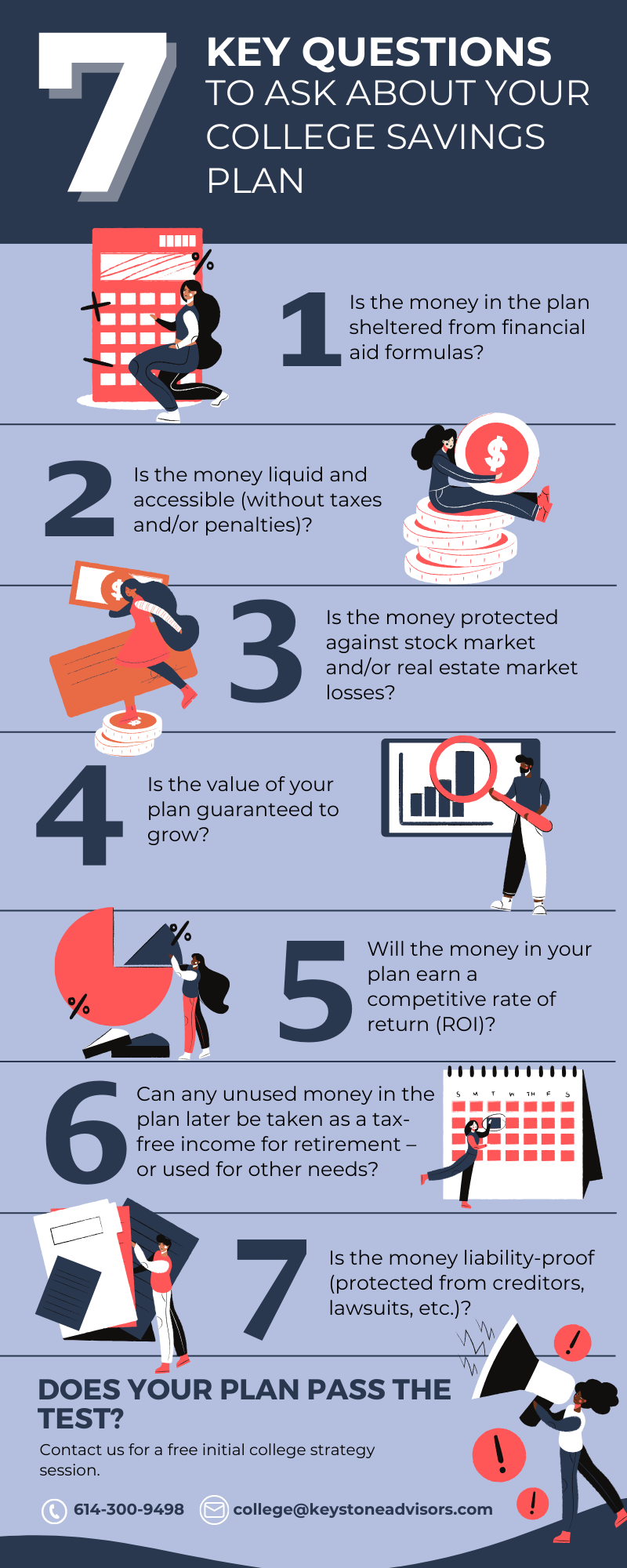
7 Key Questions to Ask About Your College Savings Plan
We all know how expensive college is these days, and we understand how important it is to start saving early. However, what's not so clear is exactly where is the best place to save our college funds?
There are a number of different ways to save for college, from the commonly recommended 529 plan, to the more controversial life insurance savings method. Depending on your time horizon, your student's academics and college interests, and other factors, some methods may be more appropriate for some families than others. Determining the best strategy for your family requires some thoughtful consideration of the different features of the various available options. Every savings vehicle has its own pros and cons.
To help you decide which plan might make the most sense for your particular situation, below are 7 key questions to ask about any college savings plan you are considering.
The importance of each answer will be personal for you. For example, you might not care if your college savings could be subject to creditors, whereas for someone with credit issues, this could be a big drawback. For someone with high income and a lot of assets, sheltering your college savings from financial aid formulas might not have any impact, whereas if you have a more moderate income, it could make a huge difference in the amount of financial aid you could receive.
You will want to carefully consider each question as it relates to the various ways to save, and assess whether the answer suits what you are looking for in a college savings plan. If your potential plan doesn't meet enough of the criteria that are important to you, you may want to explore other avenues to save for this expense.
7 Key Questions to Ask About Your College Savings Plan
1. Is the money in the plan sheltered from financial aid formulas?
2. Is the money liquid and accessible (without taxes and/or penalties)?
3. Is the money protected against stock market and/or real estate market losses?
4. Is the value of your plan guaranteed to grow?
5. Will the money in your plan earn a competitive rate of return (ROI)?
6. Can any unused money in the plan later be taken as a tax-free income for retirement - or used for other expenses?
7. Is the money liability-proof (protected from creditors, lawsuits, etc.)?
How does your plan stack up? Does it pass the test, based on which criteria are the most important to you?
If you would like help assessing your college savings plan - or want some guidance with identifying a strategy that meets as many of these points as possible, feel free to reach out to our office for a free initial strategy session with a Certified College Financial Consultant!

